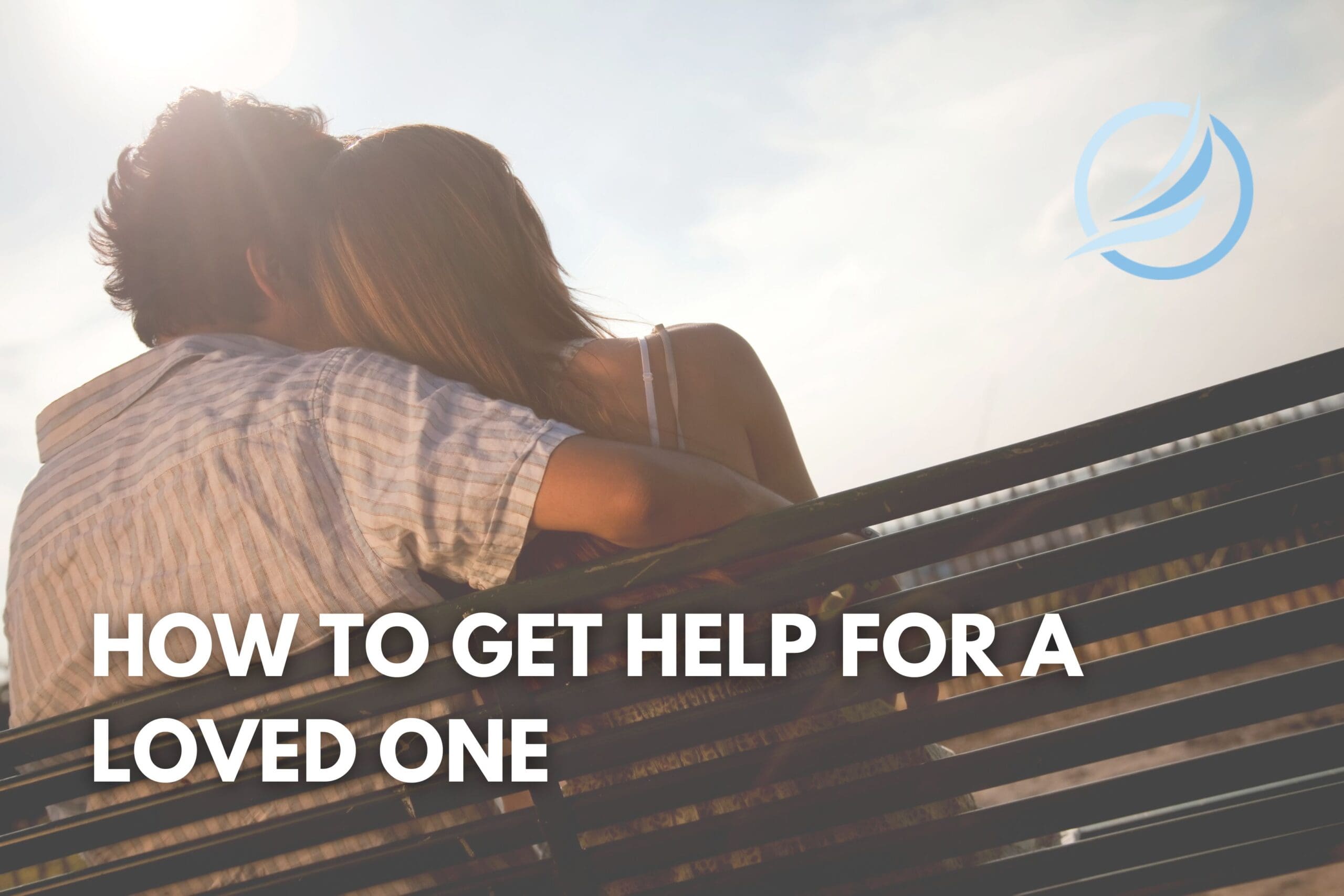Substance misuse affects more than just one person, as entire families can find themselves mired in social, legal, and financial trouble as a result. That’s why supporting a loved one struggling with a substance use disorder (SUD) is a critical step toward their recovery and the well-being of your family.
This article will explore every aspect you need to know about when supporting a loved one with addiction, from how to spot the symptoms of addiction to approaching the initial conversation and providing ongoing support in their recovery.
Recognizing the Signs of Addiction
Addiction manifests through various physical, emotional, and behavioral signs. While these vary depending on the substance, physical symptoms may include:
- Rapid weight changes
- Glazed or red eyes
- Unusual odors
- Deterioration of personal appearance
Emotional and behavioral signs can include:
- Mood swings
- Secretive behavior
- Loss of interest in hobbies
- Neglecting responsibilities at work or school
To differentiate between occasional use and addiction, look for patterns of escalating use, inability to control or stop use, and continued use despite negative consequences.
1. Preparing for the Conversation
Educate Yourself About Addiction
Before approaching your loved one, it’s essential to understand that addiction is a disease, not a moral failing.
Research treatment options and support resources, especially those available in your area. This knowledge will help you approach the conversation with empathy and provide concrete solutions.
Choose the Right Time and Setting
Look for a time when your loved one is sober and relatively calm. Avoid confronting them when they’re under the influence, as it can lead to unnecessary conflict.
Choose a private, comfortable setting where you won’t be interrupted. This could be at home when other family members are out or in a quiet, neutral location like a park. Ensure you and your loved one have enough time for a thorough discussion without the pressure of other commitments.
Consider the time of day as well. Many people are more receptive to difficult conversations when they’re not tired or stressed from work. A weekend morning or early evening might be ideal.
Also, create an environment that feels safe and non-threatening. Remove distractions like phones or televisions. If it is helpful and your loved one is comfortable with it, consider having another supportive family member or friend present.
Remember, the goal is to have an open, honest conversation. The correct setting can help your loved one feel more at ease and more willing to listen and engage in the discussion.
Plann What to Say
Avoid starting the conversation without a plan. You want to express your concerns clearly and compassionately without appearing judgmental or aggressive. Here are some tips:
- Use “I” statements: Instead of saying, “You’re ruining your life,” try “I’m worried about how this addiction is affecting your health and our family.”
- Be specific: Have concrete examples of how their addiction has impacted you and others. For instance, “When you didn’t come home last night, I was terrified something had happened to you.”
- Express love and support: Make it clear that you come from a place of care, not criticism. “I’m having this conversation because I love you and want to see you healthy and happy.”
- Avoid stigmatizing language: Use person-first language like “person with a substance use disorder” rather than labels like “addict” or “junkie.”
- Prepare for different scenarios: Think about how you’ll respond if they become angry, deny the problem, or express a willingness to get help.
- Have resources ready: Research treatment options beforehand to offer concrete next steps.
2. Having the Conversation
Express Concern and Support
When you start the conversation, lead with empathy and concern. Here are some ideas:
- Start with love: Begin by affirming your care for them. “I love you, and that’s why I need to talk to you about something important.”
- Share your observations: Describe the behaviors you’ve noticed without accusation. “I’ve noticed you’ve been missing work frequently and seem to be isolating yourself from friends and family.”
- Express your feelings: Tell them how their actions have affected you emotionally. “When you disappear for days without contact, I feel scared and helpless.”
- Acknowledge their struggle: Show that you understand addiction is a disease, not a choice. “I know you’re going through a tough time, which isn’t easy for you.”
- Offer a listening ear: “I want you to know I’m here to listen without judgment. Can you tell me about what you’re experiencing?”
The goal is to clarify that you aren’t here to argue or point fingers but are willing to listen and help.
Encourage Treatment and Support
Once you’ve expressed your concerns, it’s time to talk about getting help. Consider the following pointers:
- Emphasize hope and possibility: Mention that getting help and learning to manage addiction is possible with the proper treatment and support.
- Highlight the benefits: Make a list of all the aspects of their lives that would improve, such as their overall health and relationships with others.
- Present options: Say you’ve researched and found several treatment centers nearby with good reputations. Ask if they’d be open to learning more about them.
- Offer practical support: Reassure you’re there to help if they decide to get treatment.
- Share success stories: If appropriate, talk about people you know who have successfully overcome addiction. This can make recovery feel more attainable.
- Discuss potential consequences: Gently but firmly outline what might happen if they don’t get help. “I’m concerned that if this continues, you could lose your job or damage your health irreparably. I don’t want to see that happen to you.”
Handle Resistance
It’s common for people to resist the idea of treatment initially, so be ready for some of the most common responses. Keep these pointers in mind.
- Stay calm: If they become defensive or angry, don’t match their tone. Keep your voice steady and remind them, “I’m not here to judge you or argue. I just care about you and want to help.”
- Validate their feelings: “I understand why you might feel defensive or scared. It’s not easy to confront something like this.”
- Reframe objections: If they say, “I’m not that bad,” you might respond, “You don’t have to hit rock bottom to benefit from help.”
- Don’t enable: If they try to downplay the problem, gently but firmly stand your ground. “I know you don’t think it’s serious, but I’ve seen how this impacts your life, and I’m really worried.”
- Leave the door open: Only push hard if they’re ready to accept help. Say something like, “I understand you’re not ready to discuss treatment. Just know that when you are ready, I’m here to support you.”
- Consider professional help: If multiple attempts at conversation haven’t worked, or if the situation is dire, you might say, “I’ve been thinking about bringing in a professional interventionist to help us talk about this. Would you be open to that?”
- Set boundaries: While you want to be supportive, protecting your well-being is essential. Specify what you will only do for them if they get help (e.g., lend money, cover for them at work, etc.).
Remember, the goal of this conversation isn’t necessarily to get an immediate “yes” to treatment. Sometimes, it’s about planting a seed that will grow over time. Your loved one needs to know that you care, that help is available, and that you’ll support them when they’re ready to take that step.
3. Finding the Right Treatment
Types of Treatment Programs
Treatment options include inpatient and outpatient programs, counseling, therapy, and support groups. The right choice depends on the severity of the addiction and individual needs.
Inpatient Programs
Inpatient care, also known as residential clinical care or residential care, offers round-the-clock treatment for people with SUDs. These programs typically include:
- Detox programs
- Medication-assisted treatment (MAT)
- Psychotherapy
Inpatient programs begin with a medical detox and offer people access to addiction counseling and psychological treatment. These are structured, supervised programs intended to treat severe addiction.
Pros of Inpatient Care:
- More intensive treatment
- More opportunities to participate in rehab activities
- Easier medical detox
- Structured days
- Removed from stresses of everyday life
- Round-the-clock supervision from medical professionals
- Access to wellness programs and holistic therapies
Cons of Inpatient Care:
- More expensive
- Lack of flexibility and freedom
- Need to find childcare, maintain employment, and deal with other responsibilities
- The transition from inpatient to outpatient care to regular life can be difficult
Outpatient Programs
Outpatient services are for those who don’t require overnight accommodations or a hospital stay. Patients may spend up to 12 hours at a treatment facility but spend their nights at home. In other cases, patients may only attend weekly sessions while working or studying.
These programs are best suited for people with drug or alcohol addiction who have completed an inpatient program or only need sobriety maintenance.
Pros of Outpatient Care:
- Less expensive than inpatient care
- Access to obligations and responsibilities in life
- Flexibility
- People tend to receive more one-on-one time with counselors because therapy groups are smaller
- Access to various addiction experts and medical staff
Cons of Outpatient Care:
- Lack of access to resources for safe medical detox
- Exposure to stress in everyday life
- Less intense than inpatient programs
Select a Treatment Facility
When choosing a treatment facility, it’s crucial to consider factors such as accreditation, evidence-based practices, and specialized programs that align with your loved one’s needs.
Look for rehabs that offer the appropriate level of care, whether inpatient or outpatient or a specific program like partial hospitalization (PHP) or intensive outpatient (IOP).
Also, consider the location—sometimes, being close to home is beneficial, while other times, being distant from triggers can be helpful.
And don’t forget to ask about the facility’s approach to co-occurring disorders if you have concerns for your loved one’s mental health. Don’t hesitate to ask about success rates, visiting protocols, aftercare planning, and family involvement in the treatment process.
Consider the Role of Family in Treatment
Family involvement can significantly impact the success of addiction treatment. When a person with alcohol use disorder (AUD) progresses in their recovery, their family members often experience improvements in mental health, financial stability, and overall family functioning. Conversely, supportive family behaviors can motivate individuals to seek help and maintain sobriety.
Practical family actions include reinforcing positive behaviors, allowing natural consequences for drinking, and making specific change requests.
During treatment, families can actively support recovery by decreasing enabling behaviors, improving communication, and participating in shared sober activities.
4. Supporting Your Loved One Through Recovery
Provide Emotional and Practical Support
Supporting a loved one in recovery involves both emotional and practical aspects:
- Emotional support: It’s essential to express care and encouragement, celebrate milestones, and offer a listening ear without judgment.
- Practical support: Family members can help by creating a substance-free home environment, assisting with transportation to treatment or meetings, and participating in family therapy sessions.
It’s also crucial for family members to model healthy coping mechanisms and, if applicable, examine their relationship with substances.
Encourage Healthy Lifestyle Changes
Promoting a sober environment and encouraging healthy habits is crucial to supporting your loved one’s recovery. Here are some specific ways to promote healthy lifestyle changes:
- Create a substance-free home: Remove alcohol and drugs from the house. This reduces temptation and shows your commitment to supporting their sobriety.
- Encourage physical activity: Exercise can help reduce stress, improve mood, and provide a healthy outlet. Suggest activities you can do together, like hiking, cycling, or joining a gym.
- Promote healthy eating: A balanced diet can help repair physical damage from addiction and stabilize mood. Cook nutritious meals together or sign up for a healthy cooking class.
- Establish a routine: Structure can be very beneficial in recovery. Help your loved one create a daily routine with regular sleep patterns, meals, work or school, and recovery activities.
- Explore new hobbies: Encourage them to rediscover old interests or find new ones. This could be anything from art and music to gardening or volunteering.
- Practice mindfulness: Meditation or yoga can help manage stress and cravings.
- Foster social connections: Encourage participation in sober social activities. This could be through recovery groups, sports teams, or community organizations.
- Create a relaxing home environment: To reduce stress, keep the space clean, organized, and peaceful.
- Lead by example: Adopt these healthy habits yourself. Your actions can be a powerful motivator.
- Celebrate milestones: Acknowledge and celebrate their progress in recovery, no matter how small.
Stay Involved in Aftercare
Recovery doesn’t end when formal treatment concludes—aftercare is a vital component of maintaining sobriety. Families can support aftercare by encouraging participation in alumni programs, 12-step meetings, or other support groups. They might also help their loved one connect with a sponsor or sober mentor.
At home, families can continue reinforcing skills learned in treatment, such as effective communication and stress management.
It’s also beneficial for family members to remain engaged with their support systems, like Al-Anon or family counseling.
5. Utilizing Professional Resources
Hire an Intervention Specialist
When a loved one resists seeking help, an intervention specialist can be invaluable. These professionals guide families through the process of confronting the individual about their addiction and encouraging them to enter treatment.
Interventionists are particularly important when the person struggling has a history of mental illness, violence, or suicidal behavior, as these factors can make interventions more unpredictable. While interventions can be highly effective in leading someone to accept help, they must be conducted properly to avoid potential backlash or increased substance use.
Consider Counseling and Therapy for Families
Several evidence-based treatments involve the family unit in addiction recovery. These may be rooted in family systems theory or cognitive-behavioral approaches. Some therapies, like Community Reinforcement and Family Training (CRAFT), focus on the concerned family member, teaching them skills to encourage their loved one’s treatment entry and support their recovery.
Other modalities engage the entire family, addressing dynamics that may contribute to or be affected by substance use. Family therapy can improve communication, reduce conflict, and help all members understand their role in supporting recovery.
Join Support Groups for Families
Just as individuals in recovery benefit from peer support, so do their family members. Groups like Al-Anon allow loved ones to share experiences, learn coping strategies, and realize they’re not alone. These groups often emphasize concepts like detachment with love – setting boundaries while showing care. For families of people who aren’t yet in treatment, groups can offer guidance on encouraging help-seeking. For those with a loved one in recovery, support groups reinforce self-care and healthy ways of providing ongoing support without enabling.
Support Your Loved in These Difficult Times
Helping a loved one overcome addiction requires patience, persistence, and support. By recognizing the signs of addiction, having an open and honest conversation, finding appropriate treatment, and providing ongoing support, you can play a crucial role in your loved one’s recovery journey.
Remember, professional help is available for both the individual with addiction and their family members. Everyone involved in taking action and seeking help is the first step towards healing and recovery.


































